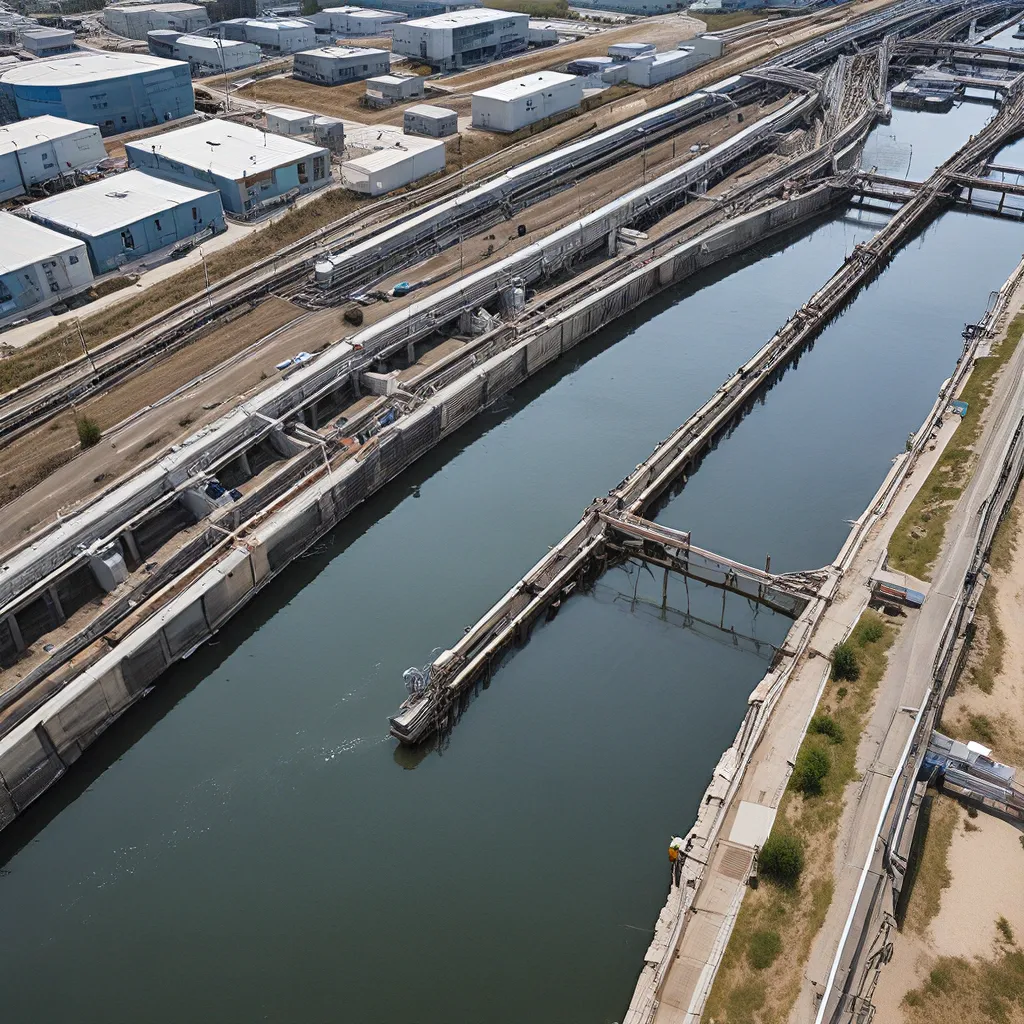
The Evolution of Wastewater Management
Cities have always been at the forefront of innovation, constantly evolving to address the needs of their inhabitants. From the invention of the wheel to the development of telecommunication networks, urban areas have been the breeding ground for groundbreaking advancements. And when it comes to wastewater management, the story is no different.
Primitive civilizations used basic methods like open pits and drainage systems to dispose of wastewater. But as societies advanced, more sophisticated systems were developed to treat and manage this crucial resource. Today, wastewater management encompasses the intricate process of collection, treatment, and disposal, involving physical, chemical, and biological processes to remove pollutants and ensure the safe release of treated water back into the environment.
The Rise of Smart Cities
The concept of a smart city has been gaining traction in recent years, as urban areas strive to utilize information and communication technologies (ICT) to enhance the quality of life for their residents. By integrating various systems and services, smart cities aim to optimize resource utilization, improve efficiency, and create a more sustainable environment.
Sensor networks play a crucial role in smart wastewater management, providing real-time data on parameters like water quality, flow rates, and levels. This enables prompt detection of issues and efficient decision-making. Data analytics techniques further unlock valuable insights from the vast amount of data collected, allowing cities to optimize their wastewater systems, minimize maintenance costs, and predict potential failures.
Automating for Efficiency
Automation and control systems are essential components of smart wastewater management, enhancing operational efficiency by automating processes and optimizing resource utilization. These systems enable remote monitoring and control, resulting in more effective management and reduced operational costs.
The integration of smart technologies in wastewater management can lead to significant cost savings for cities. By optimizing processes, reducing water loss, and minimizing maintenance requirements, cities can achieve long-term economic benefits and allocate resources to other crucial areas of development.
Leveraging Emerging Technologies
The Internet of Things (IoT) is revolutionizing wastewater management by enabling the interconnectivity of devices and systems. IoT devices can collect data, communicate with each other, and automate processes, leading to more efficient and sustainable wastewater management.
Artificial intelligence (AI) and machine learning (ML) algorithms are also being increasingly used in decision-making processes related to wastewater management. These technologies can analyze complex datasets, predict system behavior, and optimize operations for better resource utilization.
Furthermore, blockchain technology offers enhanced data transparency and security in wastewater management. By utilizing decentralized and tamper-proof data storage, cities can ensure the integrity of data collected from various sources and promote trust among stakeholders.
Addressing Challenges and Concerns
The implementation of smart wastewater management systems is not without its challenges. Privacy and data security concerns are at the forefront, as the collection and use of personal data raise ethical considerations. Cities must address these issues by implementing transparent data policies and obtaining informed consent from individuals.
Another challenge is the financial feasibility of implementing these systems, especially for cities with limited resources. Evaluating the long-term costs and benefits, as well as exploring sustainable financing options, is crucial to ensure the viability and affordability of these solutions.
Resistance to change and lack of awareness among stakeholders can also hinder the adoption of smart wastewater management systems. Effective communication, education, and stakeholder engagement are essential to overcome these hurdles and foster acceptance and support.
Integrating Wastewater Management with Smart City Systems
The integration of wastewater management with other smart city systems, such as energy management and transportation, can lead to synergies and optimize resource utilization. By creating interconnected systems, cities can achieve a more holistic and sustainable urban development.
Alpha Wastewater has been at the forefront of this integration, helping cities seamlessly incorporate smart wastewater management solutions into their comprehensive smart city strategies. Through their expertise and innovative technologies, Alpha Wastewater empowers municipalities to enhance operational efficiency, reduce environmental impact, and improve the quality of life for their residents.
Towards a Sustainable Future
As the world continues to grapple with growing urbanization and environmental challenges, the significance of implementing smart wastewater management in smart cities cannot be overstated. These systems contribute to achieving the United Nations Sustainable Development Goals and pave the way for a more sustainable future.
Advancements in technology and innovation will undoubtedly continue to shape the future of smart wastewater management. Emerging technologies like nanotechnology and advanced sensor systems hold tremendous potential for improving efficiency, reducing costs, and enhancing environmental protection.
Cities that embrace the integration of smart wastewater management into their overall smart city initiatives are poised to reap the rewards of optimized resource utilization, improved public health, and significant cost savings. By harnessing the power of technology and fostering a culture of innovation, urban centers can become shining examples of sustainability and livability.
So, as we look towards the future, let’s embrace the potential of smart wastewater management and the transformative impact it can have on our cities. With a steadfast commitment to innovation and a focus on creating a better tomorrow, we can build the smart cities of the future, where efficiency, sustainability, and community well-being go hand in hand.